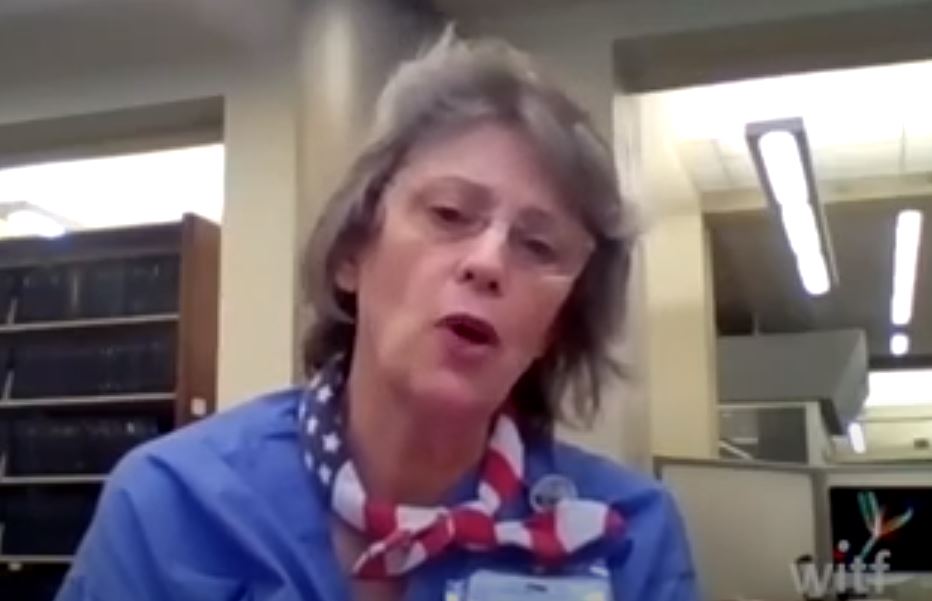“We want to be able spend extended periods of time with our patients. But this is the best way that we can do it right now.”
Keira McGuire
Martha Jansen, a registered nurse at Penn State Health Milton S. Hershey Medical Center, has been a nurse for 20 years but says she had never seen anything like COVID-19.
“I don’t think we’ve ever seen anything like this. That has moved so quickly. That has really demanded that we be thinking on our feet,” Jansen said.
She is part of Penn State Hershey’s Special Pathogens Unit. The unit was formed in 2015 when Hershey Medical Center was designated as an ebola treatment center by the Centers for Disease Control and Prevention and the U.S. Department of Health. At the time, Jansen volunteered to be part of the unit. She received special pathogens training.
“I volunteered in that because I’m a little bit older than my peers. I’m 61. I remember when AIDS and HIV came out. That was a really difficult time for a lot of people, and one of the things that made it so difficult is we didn’t know anything about it,” she said. “Fear is the mind killer and education is the cure.”
Jansen has spent the past six weeks caring for COVID-19-positive patients. There are 12 beds on her unit. Sometimes all of those beds are full.
“It can change in a heartbeat–it truly can,” she said. “So, we have to be ready.”
She said the most frustrating aspect of her current role is that she can’t spend extended amounts of time with her patients. Every time she enters a patient’s room, she needs to use new protective gear. In order to get the most out of times she does use PPE, she goes at meal times to take vital signs and give medications in one trip. On average, she says she’s in a patient’s room for 30 minutes to an hour.
“And then I leave. And then you’re by yourself for the next three to four hours until I come back in and start the process. It’s a much, much different hospital experience,” Jansen said. “It’s a little frustrating for nursing because it’s not the kind of nursing that we’ve been doing. It’s not the kind of nursing that we want to do. We want to be able spend extended periods of time with our patients. But this is the best way that we can do it right now.”
Jansen said with COVID-19, complaints of respiratory discomfort and increased oxygen needs have been common.
“And that’s a little frightening for people. I can’t breathe. I can’t breathe. So, a lot of reassuring using our audio system to call and reassure them that I’m watching you. It’s OK,” says Jansen.
Jansen is in a higher risk category for developing serious illness from COVID-19. She is 61 and has asthma, but she’s not worried.
“I am or would be considered a risk patient, but I believe in the process of using my PPE. If we’re following the protocols that we’re supposed to be doing, then I feel very, very confident about it,” she said. “I love my job. So, it’s not going to work for me to be with people, to educate people, to do this scientific stuff, to advocate for better patient outcomes. What an awesome job I have.”
PA Post is an independent, nonpartisan newsroom covering politics and policy in Pennsylvania. For more, go to PaPost.org.



